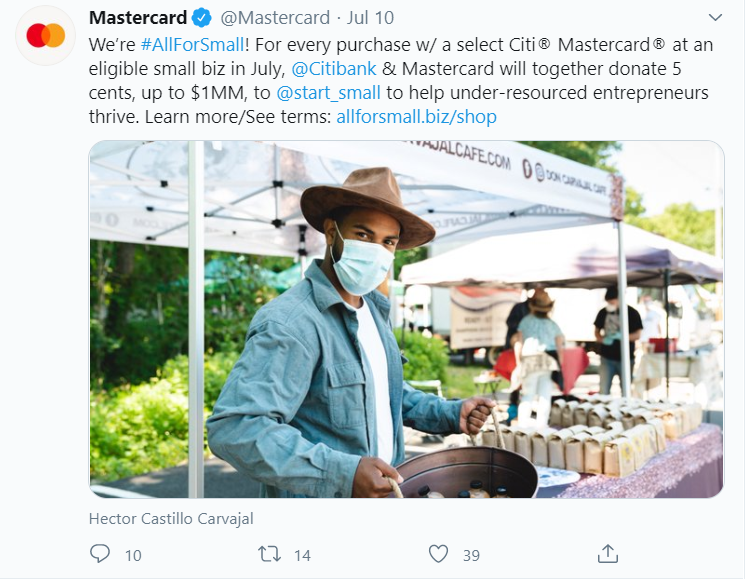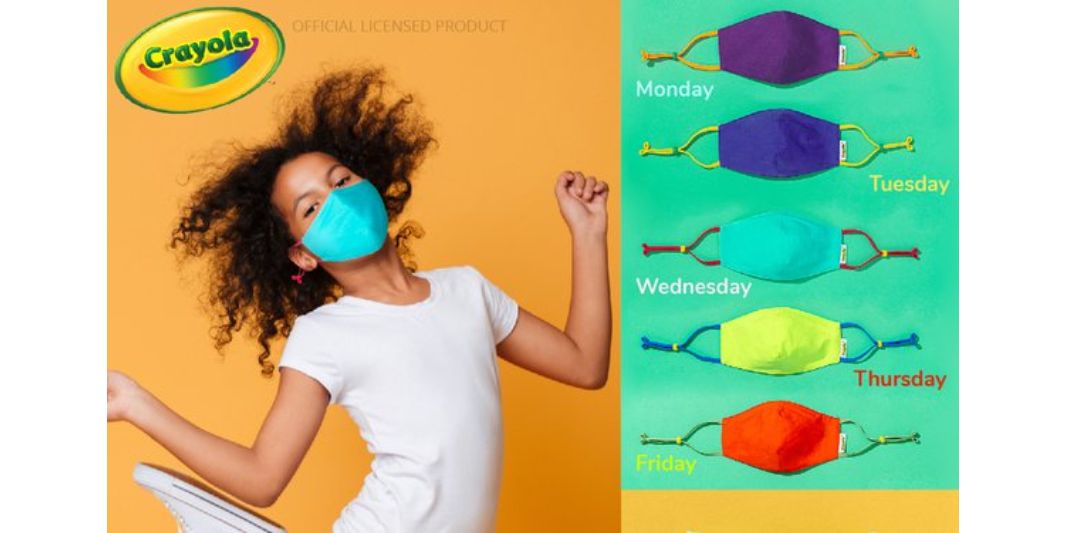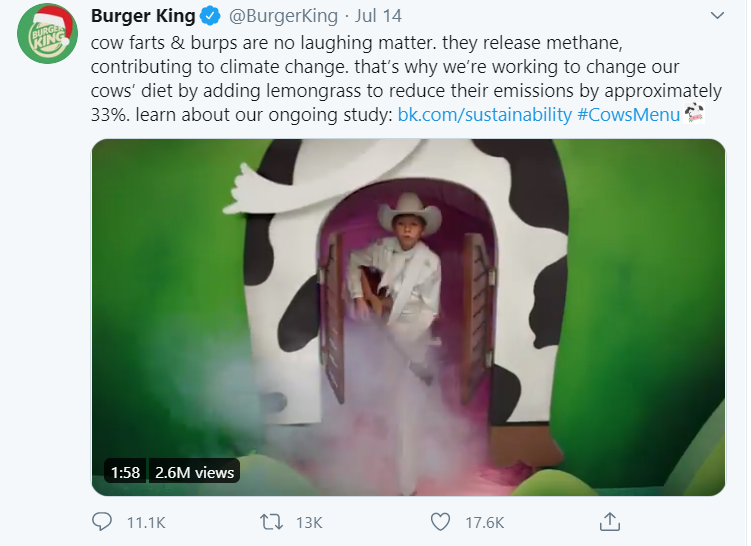[Series] Social responsibility amidst recovery: Brands are looking toward a more sustainable future
In this series, our analysts discuss how brands are addressing and practicing social responsibility amidst recovery during the COVID-19 pandemic. This week, as consumers move forward, brands are looking toward a safer, more equitable, and sustainable future.
Looking ahead toward an entrepreneurial future
As consumers grow antsier to get back out into the world but still worry about stemming the spread of the coronavirus, some brands are freshening messaging by shifting their focus from the present to the future. This means introducing new initiatives to keep consumers hopeful—both about the end of the pandemic and the end of systemic racism. And it means figuring out how to keep those consumers’ attention after months of communication focused on the urgency of the present.
With businesses reopening, many are still struggling. FSIs, including Mastercard and Citi, want to help them make it to the future.
Crayola joined with apparel company Supara Group to offer the SchoolMaskPack for kids who may be returning to school. The five-pack is retailing for $29.99 and comes in a mesh-laundry bag so the masks can be easily tossed into washing machines. The company says they should last for six months. The packs of masks also come with a calendar so parents or kids can keep track of who’s wearing what and when.
Looking ahead toward a more equitable and environmentally sustainable future
Ellevest looked to an anti-racist future by outlining specific steps it’s taking to fight racist banking practices.
In a blog post written in a clear, straightforward voice, Ellevest outlined specific steps it’s taking to fight for racial justice. The post, which was an update to a June message from CEO Sally Krawcheck, helped set the company apart from its peers, some of which spoke out against racism but didn’t go into depth about what they were doing to change systemic inequity and inequality.
The company vowed to check in throughout the year, updating the post to reflect its progress—or lack thereof. This accountability made the company stand out, as did its specificity and willingness to be forward-looking at a time when many FSIs continue with the same messaging patterns.
Burger King announced its work to help address a core industry challenge: the environmental impact of beef.
The burger chain leaned into its cheeky brand voice to get its message across authentically.
Looking ahead toward a lighter future
Brands helped consumers look forward to sports-inspired moments of joy.
Lower-than-average engagement rates suggest that, when it comes to live sports, consumers are looking straight to sports, rather than telecoms intermediaries.

Looking back
Other brands are sticking with what they know, albeit sometimes with variations on COVID-19 themes, as they build on earlier messages to strengthen them. Many of these messages related to topics that have become politicized, such as mask-wearing and staying home. Consumers may be tired of these orders, though, and brands will have to work extra hard to make their repeated messages stand out.
Masks on
After earlier announcing masks would be required, ride-hailing companies continued to emphasized cleanliness. Just as airlines have partnered with cleaning products, so did Uber. Lyft, meanwhile, encouraged its drivers to shop in its store for cleaning products.
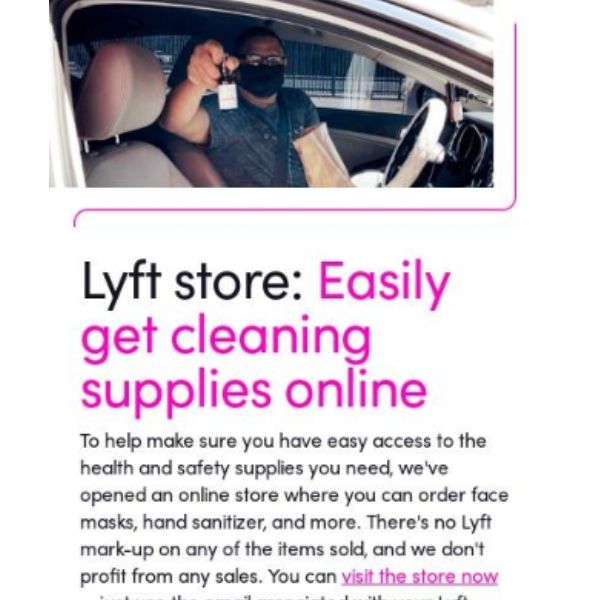
Uber‘s message had a lower-than-average read rate, suggesting consumers aren’t impressed by a specific brand sponsoring cleaning. Lyft’s email—which went to drivers, not riders—performed better than average, with the “financial relief” offer standing out to drivers looking to ease their financial hardship.
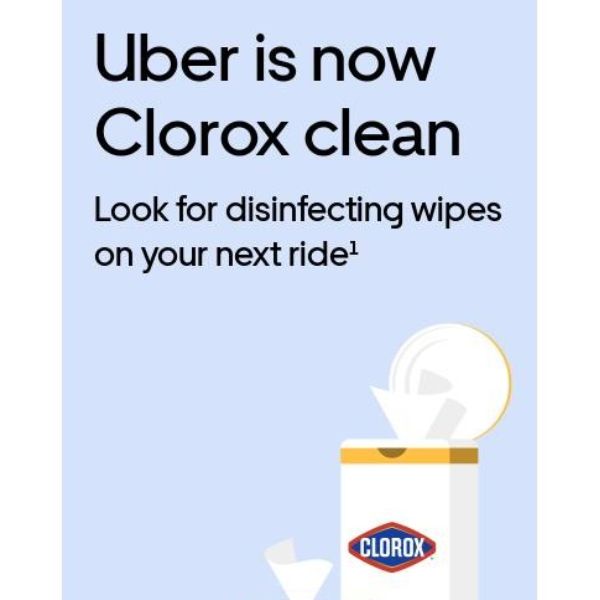
Stay home
Virtual fitness companies also tried to make it easier to stay home by obviating the need for going to gyms. Free fitness memberships, from Obé (via Amex) and Nike Training Club, continue the trend that started at the very beginning of lockdowns.


Keep (financially) healthy
Ally and Apple extended their relief efforts. The companies continued with the programs they’d set up months ago, giving continuity to their willingness to help.

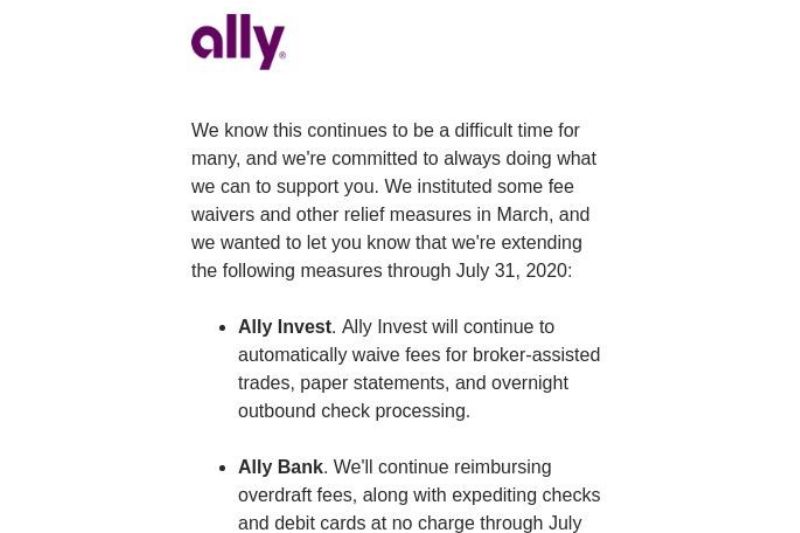
What we think
We’re not all in this together—but we can be.
COVID-19 affects different people—and different communities—differently. At the start of the pandemic, brands suggested that we’re all experiencing the same thing. But it became clear that consumers are experiencing the effects of COVID-19, as well as systemic racism, differently. Brands have responded much the way the U.S. overall has, by emphasizing individual actions that can help stem the spread of virus and quash racism; think masks in stores for the former and buying from Black-owned businesses for the latter.
Just as Nike Training Club makes each individual exerciser feel like they’re doing they’re part to stay out of gyms and, therefore, keep their “teammates” healthy, other brands can make each individual consumer feel responsible by doing their part. In other words, brands can build on individualism by showing how it’s connected to communities.
